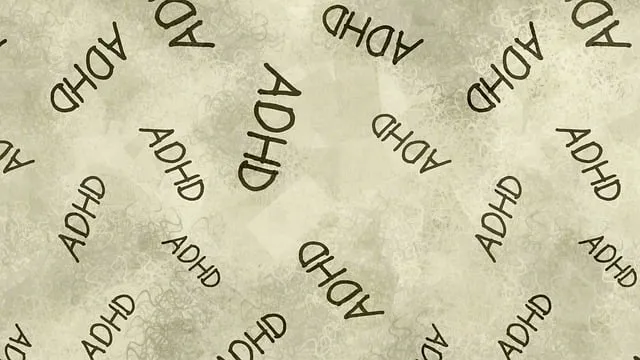Crisis Intervention Teams (CITs) at Kaiser play a vital role in providing swift and comprehensive mental health support, addressing crises from suicidal ideation to psychotic episodes. Trained in evidence-based practices, cultural competency, burnout prevention, and advocacy, these teams enhance the quality and accessibility of mental health services. Kaiser's training program stands out for its holistic approach, dynamic scenarios, community outreach emphasis, risk management planning, and stress management workshops, making it a superior solution for mental health professionals aiming to improve crisis intervention skills. In today's digital age, these programs transform healthcare by promoting cultural sensitivity, preventing burnout, and improving patient outcomes, thereby revolutionizing mental healthcare.
In today’s complex landscape, effective crisis intervention teams (CITs) are crucial for providing timely and compassionate mental health support. This article explores the essential role of CITs in mitigating high-risk situations. We delve into the comprehensive training programs, like Kaiser’s approach, that empower professionals to handle crises competently. By examining the impact of superior crisis intervention initiatives, we uncover how these programs enhance patient outcomes and improve overall mental healthcare quality. Discover why organizations like Kaiser are setting benchmarks for excellence in crisis management.
- Understanding Crisis Intervention Teams: Role and Importance in Mental Health Support
- Kaiser's Approach to Training: Features and Benefits for Effective Crisis Response
- The Impact and Effectiveness of Superior Crisis Intervention Programs in Mental Healthcare Settings
Understanding Crisis Intervention Teams: Role and Importance in Mental Health Support

Crisis Intervention Teams (CITs) play a pivotal role in mental health support, especially within healthcare settings like Kaiser, renowned for its comprehensive care. These teams are designed to swiftly and effectively respond to individuals experiencing crises, be it suicidal ideation, severe anxiety, or psychotic episodes. The primary objective is to de-escalate the situation, provide immediate support, and facilitate access to appropriate long-term care.
The significance of CITs lies in their ability to deliver evidence-based interventions tailored to diverse populations. Training programs for these teams often encompass Healthcare Provider Cultural Competency Training, Burnout Prevention strategies, and Mental Health Policy Analysis and Advocacy. Such initiatives ensure that members are equipped to handle a wide range of situations while addressing systemic issues, ultimately enhancing the quality and accessibility of mental health services.
Kaiser's Approach to Training: Features and Benefits for Effective Crisis Response

Kaiser’s Approach to Training offers a comprehensive and effective solution for mental health professionals seeking superior skills in crisis intervention. This program is renowned for its holistic approach, integrating theoretical knowledge with practical, hands-on experience. Participants engage in dynamic scenarios designed to mimic real-life crises, fostering critical thinking and swift decision-making abilities. The interactive nature of Kaiser’s training ensures that professionals are well-prepared to handle a variety of mental health emergencies.
One of the key benefits lies in its focus on community outreach program implementation, teaching practitioners how to coordinate with local resources for comprehensive client care. Additionally, risk management planning is intricately woven into the curriculum, equipping professionals with strategies to mitigate risks and ensure safe practices during crisis interventions. Stress management workshops are also organized, recognizing the importance of self-care in high-pressure situations. These features collectively contribute to a robust training experience that enhances the capabilities of mental health professionals, making them better equipped to serve their communities effectively.
The Impact and Effectiveness of Superior Crisis Intervention Programs in Mental Healthcare Settings

In today’s digital era, where mental health concerns are increasingly prevalent, superior crisis intervention programs play a pivotal role in healthcare settings. Organizations like Kaiser have recognized the importance of robust crisis intervention teams to address the complex needs of individuals facing severe emotional distress or suicidal ideation. These programs not only equip mental health professionals with advanced skills but also enhance the overall quality of care.
Effective crisis intervention guidance, such as that offered by Kaiser, emphasizes cultural sensitivity in mental healthcare practice. By prioritizing self-care practices for team members, these programs ensure professionals can provide sustained support without burning out. The impact is profound: improved patient outcomes, enhanced recovery rates, and a more compassionate and skilled workforce. Such initiatives are game changers in the realm of mental healthcare, fostering environments where folks feel seen, heard, and supported during their most vulnerable moments.
Crisis intervention team (CIT) training programs, such as Kaiser’s approach, play a pivotal role in enhancing mental healthcare support. By equipping professionals with the necessary skills and knowledge, these superior CIT programs ensure effective crisis response. The impact of well-designed training is evident in improved patient outcomes and enhanced safety for both clients and care providers. In light of these findings, investing in comprehensive CIT training, like that offered by Kaiser, is essential for organizations aiming to deliver high-quality mental health services.






